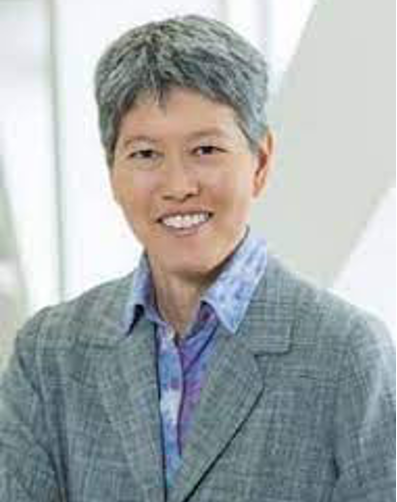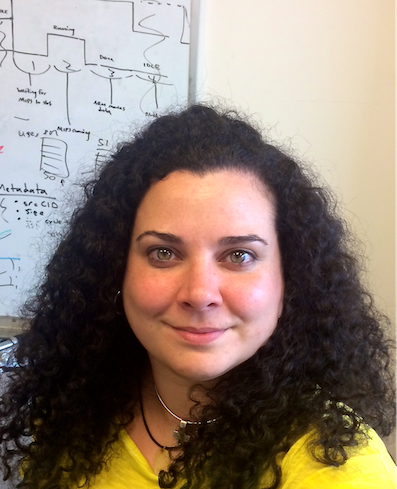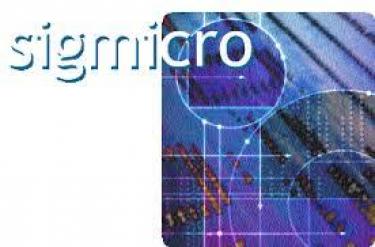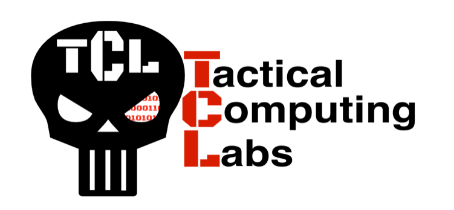For Blackberry or Windows Phone, Click hereFor feature details, visit Whova Key Dates Full Papers
Abstract Submission Deadline
January 28, 2021 (AoE)
January 21, 2021 (AoE)
Paper Submission Deadline
February 4, 2021 (AoE)
January 28, 2021 (AoE)
Author Notification
March 19, 2021
March 15, 2021
Final Papers Due
March 25, 2021
Submission
Submit your paper
here
Previous Conferences
2020,
2019,
2018,
2017,
2016,
2015,
2014,
2013,
2012,
2011,
2010,
2009,
2008,
2007,
2006,
2005,
2004
General Co-Chairs
Maurizio Palesi
University of Catania, IT
Antonino Tumeo
Pacific Northwest National Laboratory, USA
Program Co-Chairs
Georgios I. Goumas
National Technical University of Athens, GR
Carmen G. Almudever
Delft University of Technology, NL
For more information, visit the website at
www.computingfrontiers.org

Computing Frontiers 2021 is proud to announce the following keynote
speakers and talks this year:
- Keynote 1:
Anne Matsuura
Quantum Computing: A Scalable, Systems Approach
- Keynote 2:
Christina Delimitrou
Leveraging ML to Handle the Increasing Complexity of the Cloud
Quantum Computing: A Scalable, Systems Approach
 Dr. Anne Matsuura, Intel Labs, US
Dr. Anne Matsuura, Intel Labs, US
Abstract:
Quantum computing offers the potential for compelling performance improvement on important high performance computing applications such as the simulation of materials and chemical systems. In constructing a full-stack quantum computing system, there are many interdisciplinary research questions that cross the boundaries between physics, engineering and computer architecture. This talk will describe the promise and challenges of bringing quantum computing out of the lab and into a commercial full computer system and will give an overview of Intel’s quantum computing research and system development.
Bio:
Dr. Anne Matsuura is the Director of Quantum Applications and Architecture at Intel Labs. She previously held positions as the Chief Scientist of the Optical Society (OSA), Chief Executive of the European Theoretical Spectroscopy Facility (ETSF), visionary solutions architect at In-Q-Tel, program manager for atomic and molecular physics at the Air Force Office of Scientific Research, and special assistant to the U.S. Deputy Under Secretary of Defense for Laboratories and Basic Science. Dr. Matsuura was a researcher at Lund University, Stanford University, the University of Tokyo, and an adjunct professor in the physics department at Boston University. She was a Fulbright Scholar, a Japan Society for the Promotional of Science Fellow, and a AAAS Science & Technology Policy Fellow. Anne received her Ph.D. in Physics from Stanford University and is a Fellow of the OSA.
Leveraging ML to Handle the Increasing Complexity of the Cloud
 Prof. Christina Delimitrou, Cornell University, US
Prof. Christina Delimitrou, Cornell University, US
Abstract:
Cloud services are increasingly adopting new programming models, such as microse rvices and serverless compute. While these frameworks offer several advantages, such as better modularity, ease of maintenance and deployment, they also introdu ce new hardware and software challenges.
In this talk, I will briefly discuss the challenges that these new cloud models introduce in hardware and software, and present some of of our work on employing ML to improve the cloud’s performance predictability and resource efficiency. I will first discuss Seer, a performance debugging system that identifies root causes of unpredictable performance in multi-tier interactive microservices, and Sage, which improves on Seer by taking a completely unsu- pervised learning approach to data-driven performance debugging, making it both practical and scalable.
Bio:
Christina Delimitrou is an Assistant Professor and the John and Norma Balen Sesquicentennial Faculty Fellow at Cornell University, where she works on computer architecture and computer systems. She specifically focuses on improving the performance predictability and resource efficiency of large-scale cloud infrastructures by revisiting the way these systems are designed and managed. Christina is the recipient of the 2020 TCCA Young Computer Architect Award, an Intel Rising Star Award, a Microsoft Research Faculty Fellowship, an NSF CAREER Award, a Sloan Research Scholarship, two Google Research Award, and a Facebook Faculty Research Award. Her work has also received 4 IEEE Micro Top Picks awards and several best paper awards. Before joining Cornell, Christina received her PhD from Stanford University. She had previously earned an MS also from Stanford, and a diploma in Electrical and Computer Engineering from the National Technical University of Athens.



 Dr. Anne Matsuura, Intel Labs, US
Dr. Anne Matsuura, Intel Labs, US
 Prof. Christina Delimitrou, Cornell University, US
Prof. Christina Delimitrou, Cornell University, US





